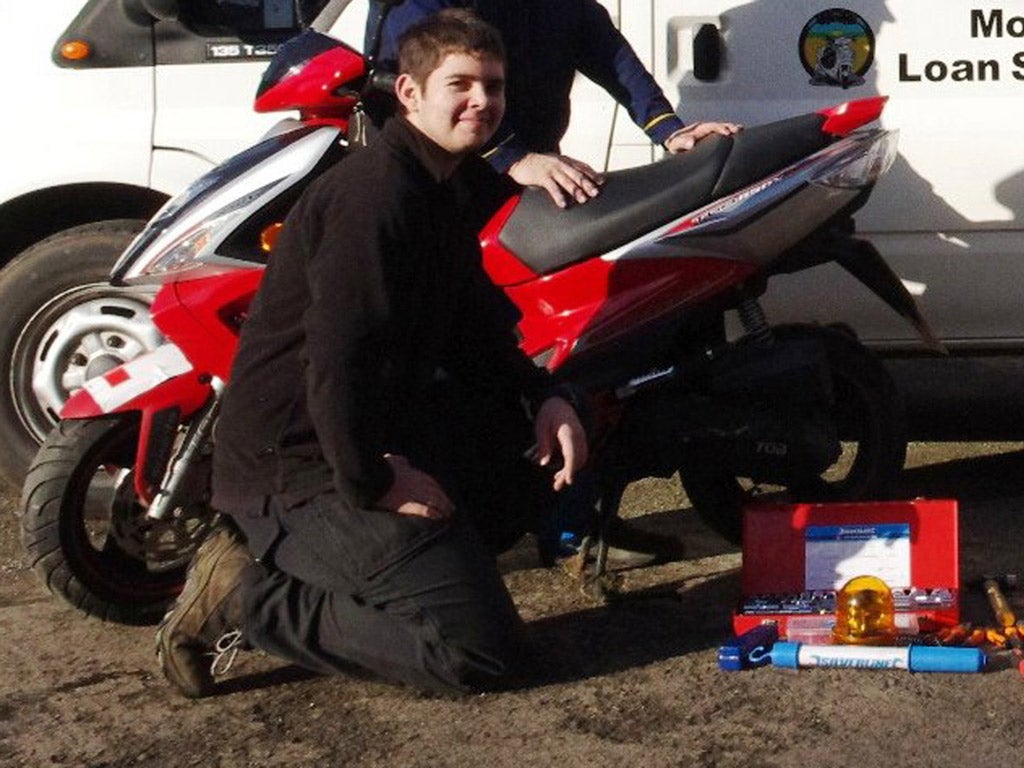Rural youth feel harsh edge of recession
Countryside hit harder by fuel costs, transport cuts, bad career advice and few training options

Young people in the countryside have been hit harder by the recession than their urban counterparts, with a sharper rise in under-25s not in work or training. High fuel costs, a lack of public transport and patchy careers advice are blamed for a disparity, which a new report warns will make it harder for 16-25 year olds in rural areas in England to get the education and skills they need to land well-paid jobs.
Since the financial crisis in 2007, the proportion of youngsters not in education, training or employment (Neets) in rural areas has increased by more than a third, compared to a rise of one-fifth in urban areas.
The Commission for Rural Communities will this week publish a report which warns young people in the countryside "face a number of uniquely rural barriers", notably in accessing transport, careers advice, training support and youth services. The cost of fuel and a reliance on the car is a big factor behind young people struggling to stay in education or find a job. "There is a great risk that vulnerable young people located within smaller pockets of deprivation, which are often more prevalent in rural areas, will be less likely to receive the sufficient support they require to help them into employment, education or training," the report says.
It warns that payment by results in back-to-work schemes could lead to inaccessible areas being overlooked and calls for creation of a minister for youth services.
Dr Stuart Burgess, chairman of the CRC, hoped the report would "shine a light on one of the most important issues facing England's rural areas – the future of its young people".
He added: "The high number of young Neets across the country is clearly a matter of considerable concern for young people, communities and policy makers. I hope this report will be a catalyst for addressing the range of uniquely intractable barriers they in rural areas face."
A study showed last week that rural living costs have risen almost twice as fast as in the UK as a whole. So-called "rural inflation" was up by 7.7 per cent over the past year, compared to a 4.3 per cent average.
However, funding for young people is lower in rural areas, despite it being costly to provide services. Predominantly urban areas were given £48 per head last year, compared to £33 per head in significantly rural areas. Some students who live in villages are forced to attend colleges to which public transport is available even if the courses they would prefer to study are not offered. It is "essential" for many young people to learn to drive and buy a car, although insurance costs are "often prohibitive", the report says.
Bus services are also under threat, after funding was cut by 28 per cent in 2011. Some councils now charge £500 for annual student passes.
The problems are being compounded by government reliance on private and voluntary groups, who struggle to fund services in remote areas. And the commission claims there is a "lack of focal point and representation" for rural youth affairs across Whitehall. The cross-party environment, food and rural affairs committee has now launched an inquiry into how ministers and civil servants treat the countryside, including to what extent, if at all, policy is "rural proofed" to ensure it can be delivered in remote villages.
'I haven't seen a bus in three years and there's no signal here for mobiles'
Tristan Watkins, 17, motorsport technology student from Burtle, near Bridgwater, Somerset
"I live 10 miles from Bridgwater College down on the Somerset Levels. It's a pretty isolated village. Transport is an issue. There is not much really to do there. I haven't seen a bus in three years. Those we have are for schools.
"When I lived in Baltonsborough, I had to cycle to Glastonbury along the canal path about seven miles most mornings. You end up tired before the day has started. I got a moped at 16. Once you have got a mode of transport it' all right, but if you haven't you are pretty stuck.
"My dad is working abroad and we like to chat every day on Skype, but sometimes we can't do it because the internet is so slow. There is no signal for mobiles where we are. It does create problems."
Join our commenting forum
Join thought-provoking conversations, follow other Independent readers and see their replies
Comments